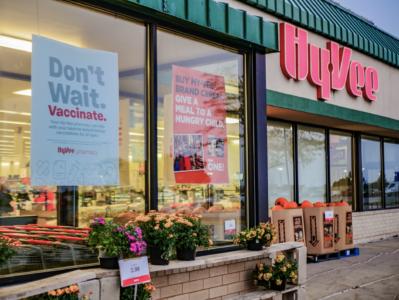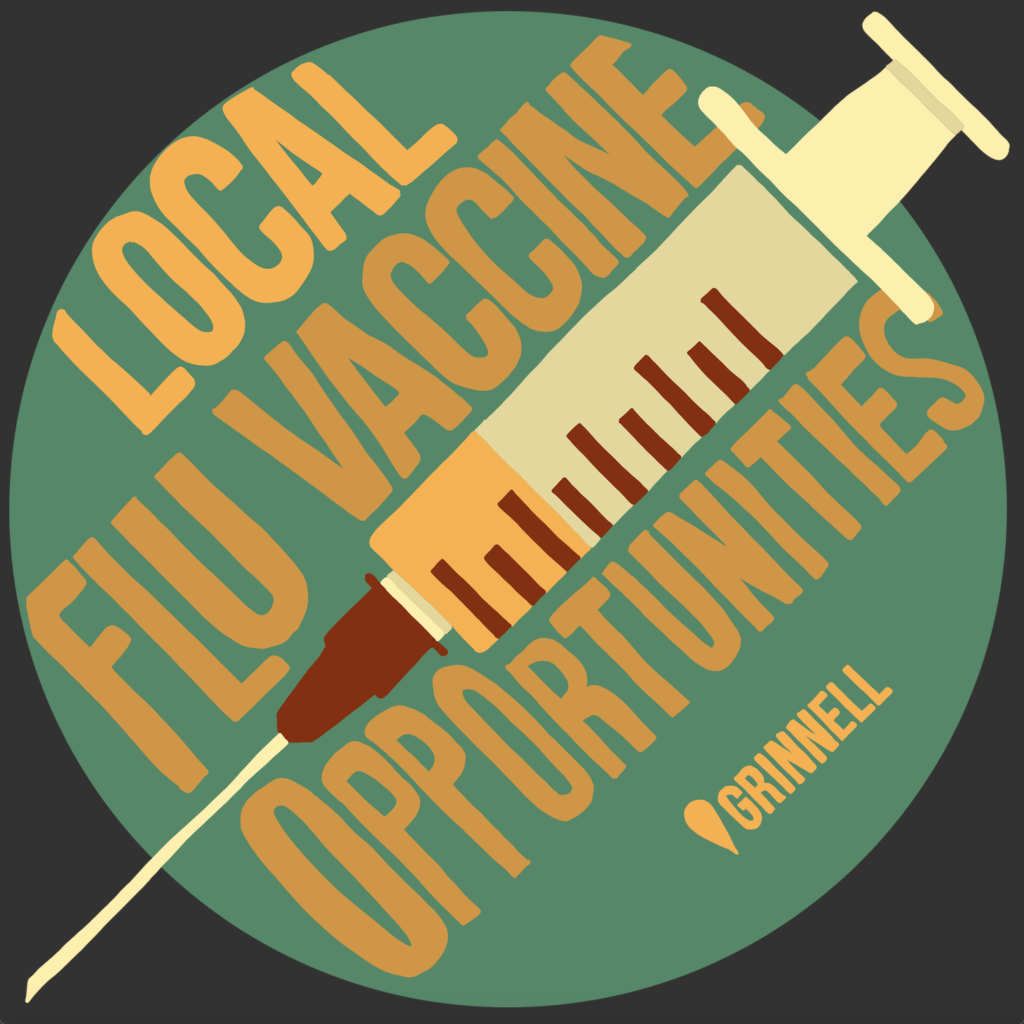As uncertainty still surrounds how COVID-19 could interact with other diseases, it is vitally important that people get the flu vaccine this year. In light of this, UnityPoint, Grinnell’s main healthcare provider, has urged people to get vaccinated at one of the many locations around Poweshiek county.
The average flu season tends to start in November or December, which means getting the flu vaccine before the end of October is ideal to protect yourself and those around you from getting sick.
UnityPoint is allowing patients to request vaccines during visits to Grinnell Family Practice, Grinnell Internal Medicine or Grinnell Victor Health Center. Additionally, they’re running multiple public health influenza vaccination clinics from the end of September through late October. The first clinic will be held at the Grinnell Public Health Building from 3 p.m. to 5 p.m. on Wednesday, Sept. 29. Grinnell High School will be hosting two more clinics: one from 4 p.m. to 7 p.m on Wednesday, Oct. 14, and another at the same time on Wednesday, Oct. 28.
No appointment is needed for any of the clinics. In addition to the standard vaccine, versions available for people with egg allergies will also be provided at all public health clinics. Masks are required in all clinics, and people are expected to practice social distancing. In addition, hand sanitizer will be provided at the clinic’s stations.
Hy-Vee and Walmart locations in Grinnell are also providing flu vaccines.
Grinnell’s vaccination rate for the flu last year was 43.1 percent. According to UnityPoint, the number of vaccinations last year was not enough to acquire herd immunity. For many members of the Grinnell community who cannot be vaccinated for medical reasons, such as the elderly, herd immunity is their only defense against the flu.
When talking about the interaction of COVID-19 and the flu, Dr. Adam Andrews of UnityPoint Health’s Des Moines office said, “I don’t think because you have one it will stop you from getting the other.” According to Andrews, the symptoms could compound and exasperate each other, especially if someone has the risk factors for both. As of now, there is no concrete data on patients with both the flu and COVID-19.

Evidence suggests that uncertainty over the relation of COVID-19 and the flu may be encouraging more people to get vaccinated. Dr. Andrews reported a 50 percent increase in flu vaccines provided by UnityPoint clinics when compared to this time last year. To keep up with this increase, UnityPoint already produced 30,000 more vaccines this year than last. They will continue to make more as people get vaccinated closer to winter.
Preventing any sort of illness in any way possible is the best precaution anyone can take. Getting the flu vaccine earlier is better because it allows antibodies the two weeks necessary to develop.
If too many patients contract the flu, COVID-19 or both, healthcare systems could get overwhelmed, according to Andrews. “The biggest fear would not be only going into cold and flu season,” he said, “the biggest concern would be if we are going to get a resurgence of COVID symptoms [as part of it].”
According to the Center for Disease Control and Prevention (CDC), a regular flu season kills 62,000 Americans in the average year. It is a possibility that since the flu shares many of the same symptoms as COVID-19, it could cause double the damage this year.
The long-term effects of COVID-19 are still unknown. There could be lasting damage done to the body even after recovery, and it might interact with the flu in ways that are unpredicted.
We don’t yet know when a COVID-19 vaccine will be created, released, or widely used. In the meantime, having a flu shot is the best preventative measure people can use in addition to masks and social distancing.

























































